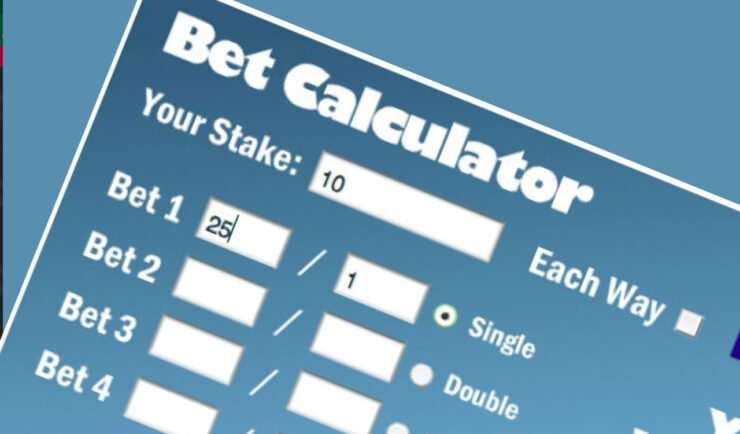Betting has been a popular pastime for centuries, and with the advent of online betting platforms, it has become easier than ever to place a bet. However, if you want to be successful in your endeavors, it is essential to have a good understanding of betting calculations. In this beginner’s guide, we will cover the basics of betting calculations, and how you can use math to increase your odds of winning.
Calculating Probability: The Foundation of Wagering
Before we dive into the different calculations, it is essential to understand the foundation of betting: probability. In simple terms, the probability is the likelihood of an event happening. In betting, probability is used to determine the odds of a particular outcome occurring.
For example, let’s say you want to bet on a football match between two teams, Team A and Team B. If you believe that Team A has a 60% chance of winning, then the probability of Team A winning is 0.6, and the probability of Team B winning is 0.4.
Once you have calculated the probabilities, you can use a betting calculator to convert them into odds. The calculator will help you determine the potential payout for a particular bet, based on the odds and the amount you are willing to stake.

Converting Probability to Odds: How Bookmakers Make Money
Bookmakers make their money by offering odds that are lower than the true probability of an event occurring. For example, if the true probability of an event happening is 50%, the bookmaker may offer odds of 1.8, which implies a probability of 55.6%.
This difference between the true probability and the offered odds is known as the bookmaker’s margin. It is essential to keep in mind that the bookmaker’s margin varies depending on the type of bet and the event being bet on. Understanding margins is crucial if you want to be successful in your wagering endeavors.
Understanding Different Types of Odds: Decimal, Fractional, and American
There are three different types of odds used in betting: decimal, fractional, and American. Decimal odds are the most common type of odds used in Europe and Australia, while fractional odds are popular in the UK and Ireland. American odds are used predominantly in the United States.
Decimal odds are expressed in decimal forms, such as 1.5 or 2.25. Fractional odds are expressed in fractional forms, such as 3/1 or 5/2. American odds are expressed in plus or minus form, such as +150 or -200.

Calculating Payouts: How Much You Can Win or Lose
Calculating payouts is a crucial aspect of betting calculations. Once you have calculated the odds of an event occurring, you can use a betting calculator to determine the potential payout for a particular bet. The potential payout is calculated by multiplying the amount you wish to stake by the odds offered by the bookmaker.
For example, if you bet $10 on a football match with odds of 2.5, your potential payout would be $25. However, it is important to keep in mind that you will only receive this payout if your bet is successful.
Using Probability to Find Value Bets: How to Beat the Bookmaker
One of the key strategies for successful betting is to find value bets. A value bet is a bet where the odds offered by the bookmaker are higher than the true probability of an event occurring. To find value bets, you need to calculate the true probability of an event occurring and compare it to the odds offered by the bookmaker.
If the odds offered by the bookmaker are higher than the true probability, then you have found a value bet. However, it is important to keep in mind that value bets are rare and difficult to find. To increase your chances of finding value bets, you need to have a good understanding of the sport or event you are betting on and be able to assess the probability of different outcomes accurately.

Bankroll Management: Protecting Your Funds
Another essential aspect of successful wagering is bankroll management. Bankroll management is the process of managing your betting funds to ensure that you can continue betting even after a losing streak.
A general rule of thumb is to only bet a small percentage of your bankroll on each bet, usually between 1% to 5%. For example, if your bankroll is $100, you should only bet between $1 and $5 on each bet.
Basic Strategies: How to Make Informed Decisions
To make informed betting decisions, you need to have a good understanding of the sport or event you are betting on. This includes knowing the teams or players involved, their strengths and weaknesses, recent form, and any injuries or suspensions.
One popular betting strategy is the “Martingale System,” which involves doubling your bet after each loss, with the aim of recouping your losses and making a profit when you eventually win. However, it is important to keep in mind that this strategy can be risky and should only be used with caution.
Testing Your Skills: Practice Exercises for Beginners
Finally, to put your newfound knowledge of betting calculations into practice, you can try some practice exercises. These exercises will help you refine your skills and test your understanding of different betting calculations.
You can also try comparing the odds offered by different bookmakers for the same event to find the best value bet. These exercises will help you gain practical experience in using different betting calculations and prepare you for making informed betting decisions in real-world scenarios. Remember, practice makes perfect, so keep practicing and refining your skills to increase your chances of success in the world of betting.

Conclusion
Betting calculations can be a great way to maximize your chances of success when it comes to betting. With the right understanding and use of mathematics, you can gain an edge over other bettors and increase your overall winnings. By familiarizing yourself with the different types of bets, their associated odds formats, and how these numbers interact while making wagers; you’re one step closer to becoming a masterful punter. So don’t wait any longer, start crunching those numbers today!

